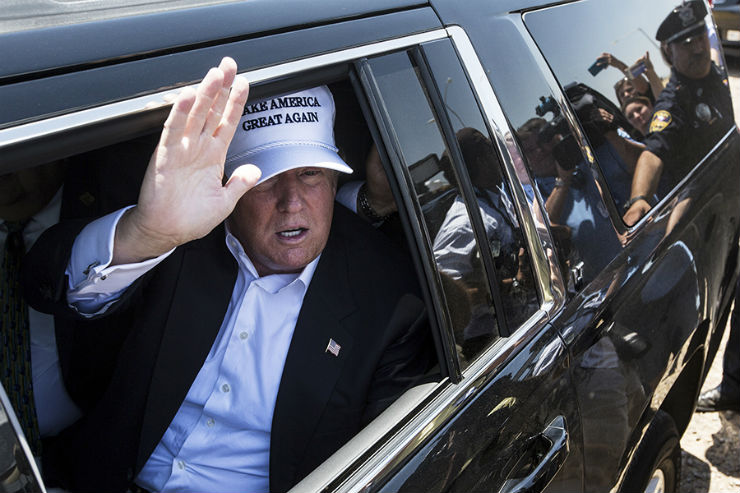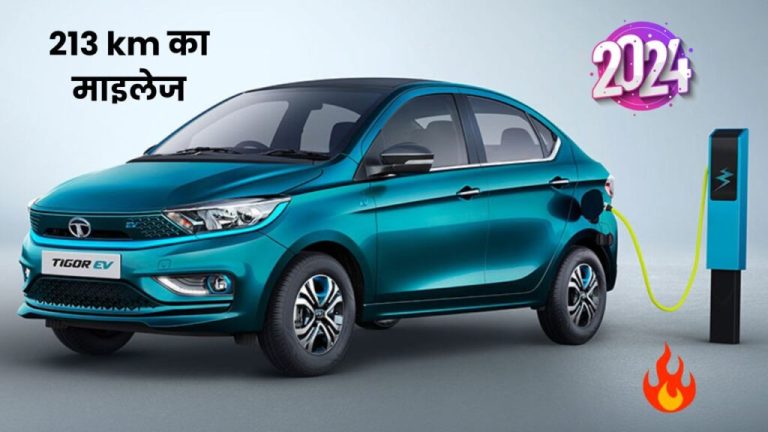Donald Trump: Will Stop Electric Car Sales If Elected [Video]
The former US President Donald Trump has once again come under the spotlight. This time around he has stated something extremely controversial. Trump recently, during his MAGA (Make America Great Again) rally, announced that he plans to halt electric vehicle (EV) sales if he is re-elected. With this, he has given a proposal aimed to reverse many of the climate policies and incentives implemented by the Biden administration. His anti-EV stance has now sparked concern across the automotive industry of not just America but the entire globe.
Trump's Anti-EV Stance
During his speech, Donald Trump announced that his plans include significant policy reversals such as reducing EV tax credits and rolling back tailpipe emissions targets. He added that he will also be dismantling key elements of Biden's climate agenda.
This particular proposal has generated strong opposition from automakers. They have stated that they are worried about the adverse effects that will happen on investments and job growth. William Clay Ford Jr., executive chair of Ford Motor, expressed the industry's concerns about the instability caused by shifting political decisions.
He stated, “Our time frame as a company, our planning time frame, is a lot longer than election cycles.” Ford also added, “When we're whipsawed back and forth by politicians that becomes really difficult for us.”
Donald Trump over the years has been dismissing scientific evidence of climate change. On many occasions, he has stated that it is just a hoax. The former president has stated that electric cars are not the future and they are just being sold to promote the agendas of the Biden Administration and its supporters.
Investments and Jobs at Stake
One of the significant achievements of the Biden administration is the Inflation Reduction Act. Currently, because of this Act, the US has seen massive investments in EV manufacturing. One of the main ones is from the South Korean automaker Hyundai.
The company is investing $13 billion in Georgia, a state Trump narrowly lost in 2020. This new investment is creating 12,000 jobs. Similarly, SK On has committed $5 billion to EV production in Georgia as well.
Industry experts believe that these investments not only boost the economy but also create thousands of jobs in key states. And if Trump rolls back these policies, it could jeopardize these investments and threaten blue-collar American jobs.
If Trump is re-elected and Republicans gain control of Congress in the USA, experts have stated that there could be efforts to rescind parts of the 2022 Inflation Reduction Act. This act currently provides approximately $370 billion in tax credits for clean energy and EV manufacturing.
The Future of the EV Market in the USA
Despite the potential policy reversals, the EV market is unlikely to come to a complete halt. Investments in EV infrastructure, such as charging stations and battery manufacturing, will continue to grow.
States like Texas and Florida, both Republican strongholds, are witnessing significant demand for electric vehicles. This demand indicates that EVs have crossed the barrier from early adopters to mainstream consumers.
Tesla Model Y
Current State of the US EV Market
The EV market in the United States has experienced rapid growth over the past few years. In 2016, only 159,139 electric vehicles were sold in the US. However, by 2024, sales are projected to exceed 1.5 million units.
Current State of the Global EV Market
Now, coming to the state of the EV market worldwide, it has been experiencing fluctuations. Despite an overall growth trend, recent reports indicate a decline in global EV sales. Some factors contributing to this downturn include supply chain disruptions, rising raw material costs, and economic uncertainties. In 2023, global EV sales saw a significant drop compared to previous years.
Electric Vehicles Market in India
As for the Indian electric vehicle market, our country has been gradually adopting electric vehicles. The Indian government over the years has introduced several incentives to promote EV sales. These incentives include subsidies, tax benefits, and infrastructure development for charging stations.
So, as a combined effect, EV sales in India have been on the rise. In 2023, EV sales in India saw a year-on-year increase. And the most notable contributions were from two-wheelers and commercial vehicles.
Major players like Tata Motors, Mahindra, and Ola Electric have also reported growing sales in the country. Currently, the Indian government has an ambitious target to achieve 30% electric mobility by 2030. For this, it is trying its best to promote electric vehicles in India.
Difficulties faced by EVs
Although the acceptance of electric vehicles has increased significantly, there are still hesitations from the buyers. Currently, electric vehicles are facing problems due to high upfront costs, limited charging infrastructure, and consumer skepticism.
So, to overcome these hurdles, the Indian government is focusing on increasing battery manufacturing capabilities. It is also promoting automakers to expand the charging network across the country. It is providing continued policy support.
The Reality of EVs: Are They as Clean as They Seem?
While EVs are often touted as a cleaner alternative to traditional ICE vehicles, the reality is a little more complex than one would think. The environmental impact of EVs extends beyond their zero-emission operation. Several factors contribute to the overall carbon footprint of electric vehicles and here is the list of them.
Battery Production
Many people undermine the environmental effects of producing electric vehicle batteries. The production of lithium-ion batteries, essential for EVs, involves significant environmental costs. Presently, mining and processing raw materials like lithium, cobalt, and nickel lead to substantial ecological damage and carbon emissions.
Energy Sources
The cleanliness of EVs largely depends on the source of the electricity used to charge them. In regions where coal or other fossil fuels are used to generate electricity, one can argue that the carbon footprint of EVs becomes substantial. So it adds to the overall stance that EVs are not as low polluting as they are said to be.
End-of-Life Management
Lastly, proper disposal and recycling of EV batteries are critical to minimizing environmental impact. Current recycling technologies are not fully efficient. So the improper handling of these discarded batteries is causing pollution to increase and resources to be wasted.
Source
The post Donald Trump: Will Stop Electric Car Sales If Elected [Video] first appeared on Tezzbuzz.






